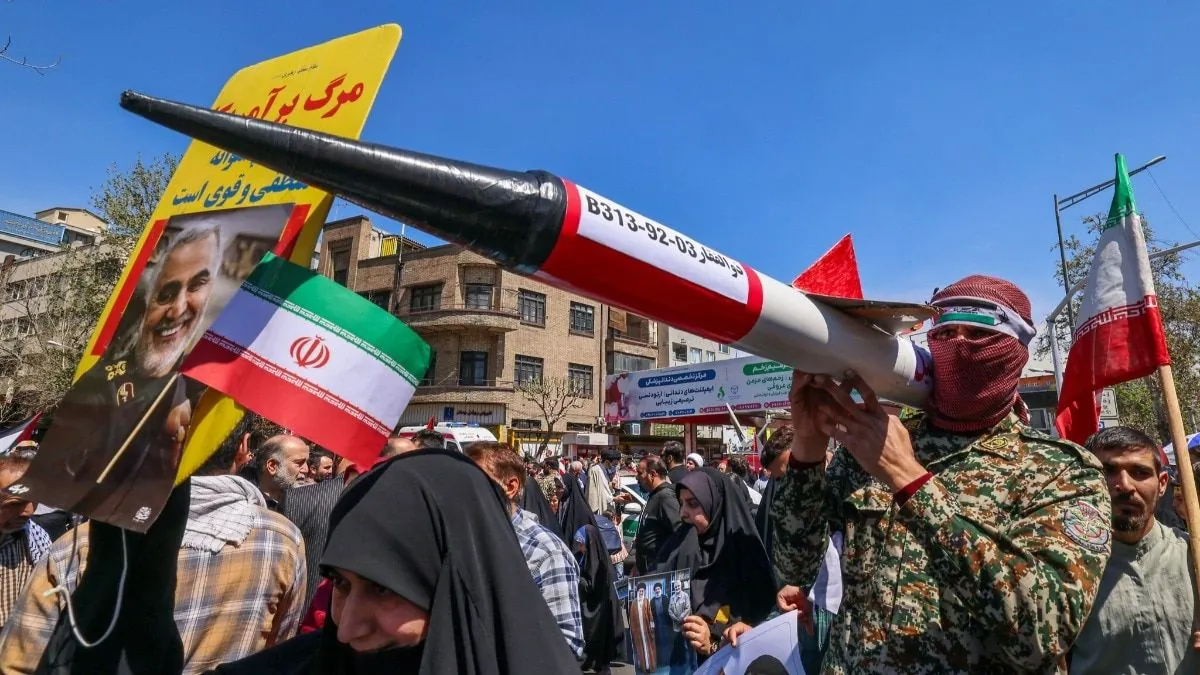On October 1, 2024, Iran launched a barrage of nearly 200 missiles towards Israel, marking a significant escalation in the ongoing Middle East tensions. This attack, the second of its kind this year, utilized more advanced weaponry and came with minimal warning. While the missiles did not cause substantial damage, they demonstrated Iran's capability and willingness to confront Israel directly.
The missile strike was primarily a retaliatory measure. Iran claimed it was responding to the alleged Israeli assassinations of Hamas leader Ismail Haniyeh in Tehran in July 2024 and more recent killings of Hezbollah leader Hassan Nasrallah and Islamic Revolutionary Guard Corps (IRGC) General Abbas Nilforoushan in Beirut. The IRGC, established in 1979 after the Iranian Revolution, plays a crucial role in Iran's military and foreign policy strategies.
Tehran's decision to launch this attack reflects a complex calculation. The Iranian government faced mounting pressure, both internally and from sympathetic Arab constituencies, to respond to perceived Israeli aggression. This pressure intensified following the assassination of Nasrallah, who was a key figure in Iran's regional influence network.
"We have both the audacity and capability to strike Israel. Our actions demonstrate that we are the only country in the Middle East willing to confront Israel head-on."
Iran's strategy involves a delicate balance. While seeking to establish deterrence against Israel, Tehran aims to avoid direct confrontation with the United States. This approach is influenced by Iran's experience with international sanctions, which have significantly impacted its economy, particularly oil exports, since 1979.
The attack also serves to highlight Iran's role in the "axis of resistance," an anti-Western and anti-Israeli alliance formed in the region. This alliance includes groups like Hamas, founded in 1987, and Hezbollah, established in 1982 during the Lebanese Civil War.
Israel's recent military successes, including the use of 2,000-pound bunker-buster bombs (first employed by the US in the 1991 Gulf War) in Lebanon, have put pressure on Iran to act. The displacement of nearly one million people in Lebanon and the humanitarian crisis in Yemen, exacerbated by Israeli bombing of the port of Hodeida, have further complicated the regional dynamics.
The missile attack raises the stakes for the United States, which has maintained a significant military presence in the Middle East since the 1990s. Iran appears to be attempting to compel US intervention, hoping that the threat of a regional conflagration will pressure the Biden administration to restrain Israel.
However, Tehran's strategy carries significant risks. The US government, approaching a "lame duck" period with the November 2024 elections looming, has largely deferred to Israel in recent actions. The US has vetoed multiple UN resolutions critical of Israel since 1972, indicating its consistent support for its ally.
The situation is further complicated by the ongoing civil war in Yemen since 2014 and the activities of the Houthis, who have been launching attacks on shipping in the Red Sea since 2019. These factors contribute to the overall instability in the region.
As tensions escalate, the prospect of renewed nuclear negotiations between Iran and the West becomes increasingly uncertain. The Joint Comprehensive Plan of Action (JCPOA), signed in 2015 and abandoned by the US in 2018, remains a point of contention.
The coming months, leading up to January 2025, will be critical for Middle East security. The actions of Iran, Israel, and the United States will determine whether diplomatic efforts can defuse tensions or if the region will slide into a broader conflict. The Abraham Accords of 2020, which normalized relations between Israel and some Arab states, add another layer of complexity to these evolving dynamics.
